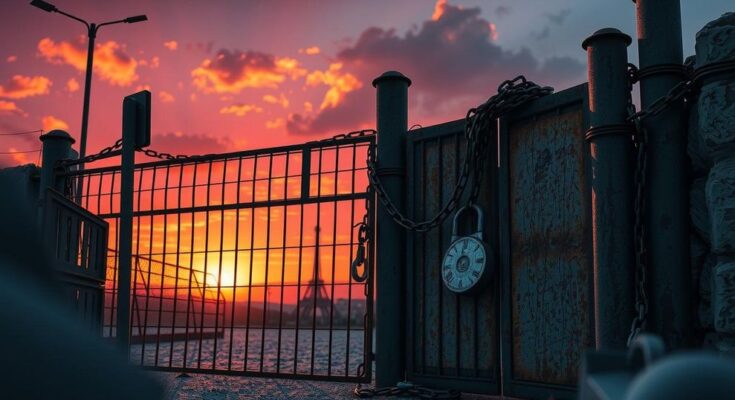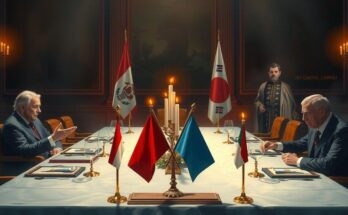Angola denied entry to several prominent African opposition leaders, prompting criticism for its actions which were attributed to visa irregularities. Tundu Lissu, Venancio Mondlane, and Ian Khama were among those affected. Analysts have questioned the government’s commitment to democracy and its role as a mediator within the African Union.
Angola has faced considerable criticism after denying entry to prominent African political leaders who were set to attend a conference organized by the main opposition party, Unita. These leaders included Tanzanian opposition figure Tundu Lissu, Mozambique’s Venancio Mondlane, and Ian Khama, the former President of Botswana. Lissu described the government’s actions as “inexplicable and unacceptable,” emphasizing the need for accountability for such political exclusions.
According to a source from Angola’s Migration and Aliens Service (SME), the expulsion of Mondlane and 13 members of his entourage was attributed to irregularities with their visas, hindering their entry into the country. In total, approximately 20 political leaders and representatives from various African parties were denied access. Lissu noted, “the government of this country is ruling a dictatorship while pretending that Angola is a democratic country.”
In addition to those aforementioned, Kenyan Senator Edwin Sifuna, former Colombian President Andres Pastrana, and Zanzibar’s first Vice-President Othman Masoud Othman also faced entry refusals. Political analyst Tomas Viera Mario remarked on the situation’s oddity, as President Joao Lourenco, who is also the chair of the African Union, has positioned himself as a continental mediator, yet barred these significant figures from entry, demonstrating a lack of respect for the principles of pan-Africanism.
All denied leaders were part of Unita’s delegation expected to participate in a political summit in Benguela, prompting further objection from Unita lawmaker Nelito da Costa Ekwiki, who condemned the government’s decision. Critics argue that this pattern of suppressing dissent is indicative of the Angolan government’s desire to maintain its existing grip on power.
In summary, Angola’s refusal to allow prolific opposition leaders entry into the country raises serious questions regarding its democratic stance. The incident sparked widespread condemnation, underscoring allegations of dictatorial governance. As the Angolan government continues to face scrutiny for its actions, it remains to be seen how this will impact its role within the African Union and broader political dynamics across the continent.
Original Source: www.bbc.com




